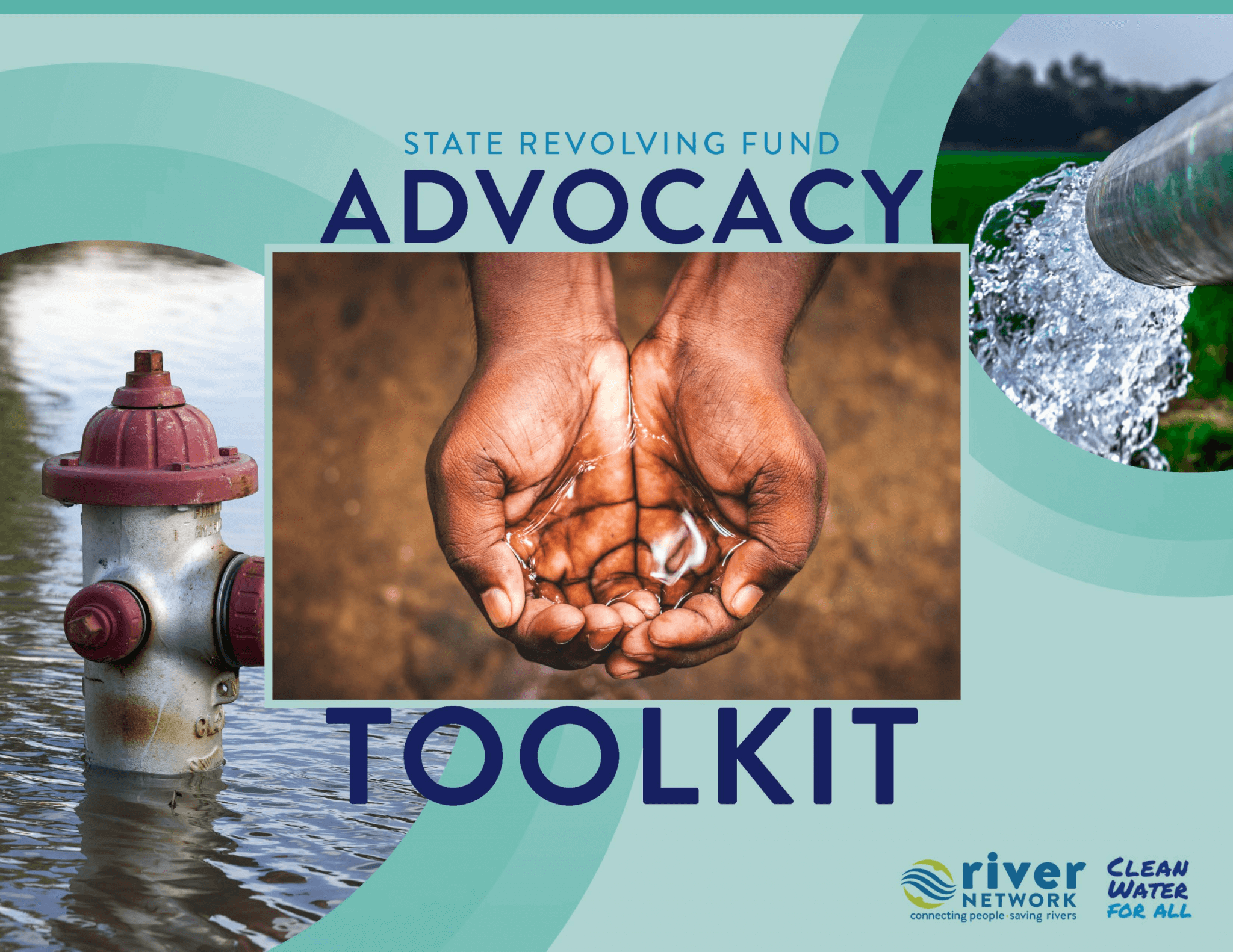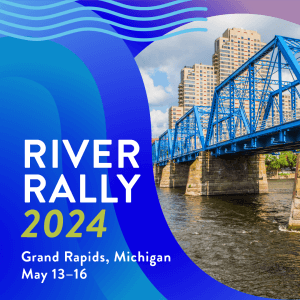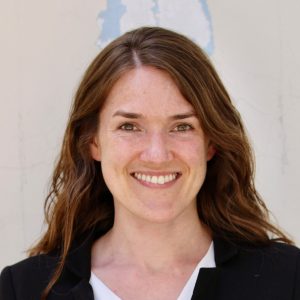River Voices: January 2023

Welcome to the January 2023 edition of River Voices. This month, we’re thrilled to release our State Revolving Fund Advocacy Toolkit – a first of its kind, comprehensive resource that will make you an expert on how to advocate for equitable implementation of historic federal investments in water infrastructure. And, we hope your new year is off to a good start, whatever that means for you!
The Clean Water and Drinking Water State Revolving Funds (CWSRF and DWSRF) represent the largest source of federal funding for water infrastructure. The SRFs are intended to support communities across the country by increasing their financial capacity to take on large water infrastructure projects, addressing everything from outdated and leaking pipes to increasing the storage capacity of their water treatment plant to ensure continuous delivery of safe and clean water to their residents.
In practice, however, the communities most in need of these investments often face barriers to accessing these dollars. We want to change that.
“[T]hrough my work in the advocacy toolkit, it became apparent to me who is working in this space federally, while also helping me understand the intricacies of particular policies. [The Toolkit] will be an important reference point because it just aggregates everything.”
–Rebecca Shelton, Appalachian Citizens’ Law Center and SRF Toolkit Advisory Group member
Erin joined River Network in 2021. Working across River Network’s programmatic areas as River Programs Policy & Research Associate, Erin dives into state and federal policies and shares them with the network through the State Policy Hub, policy showcases and peer learning opportunities, and publishing updates and toolkits, including lead authoring the above SRF Advocacy Toolkit.
In case you missed it, River Rally 2024 dates have been announced! We can’t wait to gather with the network in Grand Rapids, Michigan, from May 13-16, 2024.
Plus, you can engage in the River Rally planning process! Contribute to the public jamboard to share hopes, ideas, inspiration, and what you want to see in the next network gathering.
“We work primarily in rural areas with small water utility systems where there are declining population trends and lower income populations. All these factors combined emphasize the importance that all utility bills, not just water, are affordable. “
Rebecca Shelton is the Director of Policy at Appalachian Citizens’ Law Center (ACLC).
Considering ‘Climate Refugia’ an Outstandingly Remarkable Value on WSRs
Jan. 10, 12:30p PT/3:30p ET
The River Management Society invites you to join their next roundtable! Wild and scenic river management plans are uniquely positioned to support climate resiliency by protecting free-flowing rivers, riparian habitats, and migration corridors. But could the WSR Act go further to mitigate the effects of climate change?
State Policy Showcase: Addressing PFAS in Pollution Discharge Permits
Jan. 17, 10a PT/1p ET
Join us for our next State Policy Showcase! Geoff Gisler, Senior Attorney with the Southern Environmental Law Center will tell us how advocacy by conservation groups and residents in North Carolina led to the strongest limits on PFAS in a Pollution Discharge (NPDES) Permit in the nation – including the nuts-and-bolts of the policy and what drove action by decision makers.
Water Affordability Advocacy Toolkit: Deep Dive on Data Collection and Transparency
Jan. 19, 11:30a PT/2:30p ET
Building on “Introduction to NRDC and NCLC’s Water Affordability Advocacy Toolkit,” this session presents a deeper dive on one of the toolkit’s modules: Data Collection and Transparency. Speakers include advocates who helped secure new data reporting requirements in Illinois, California, and New Jersey and supported efforts to develop model state legislation.
Register for the 2023 River Management Society Symposium
Feb. 28 – Mar. 2
At the 2023 Symposium you’ll have opportunities to learn and connect with river managers, stewards and students from across the country in San Antonio, TX, at the “Reimagine River Access” Symposium. Take a deep dive into the physical, economic and social issues surrounding river access today, and explore one of the nation’s busiest recreation districts!
Emerging Water Utility Leaders: Apply for the Water Access & Equity Lab
The Center for Water Security and Cooperation invites all emerging water utility leaders to apply to be part of the inaugural cohort of Water Utility Leadership Fellows! All emerging water utility leaders are welcome to apply. Women and Black, Indigenous, People of Color, Latino/Hispanic, and other candidates from communities underrepresented in the water sector are particularly encouraged to apply.
Find Funding for Nature Based Solutions
The National Wildlife Federation has launched a new microsite that aims to easily connect community planners and other stakeholders with sources of federal funding for infrastructure projects that incorporate natural elements. Explore the interactive database, including filters that help you search for nature-based solutions funding and technical assistance resources that fit your needs.
Katimiîn and Ameekyáaraam Sacred Lands Act Headed to POTUS
On December 21 the Katimiîn and Ameekyáaraam Sacred Lands Act, which will return sacred lands on the Klamath River to the Karuk Tribe passed Congress under the leadership of Representative Jared Huffman and Senator Alex Padilla, heading to the President’s desk. Congrats to all who made this win possible.
- 🎧 The Clean Water Pod – Give this great new podcast from NEIWPCC a listen! Host Jeff Berckes to explore challenges and successes of the Clean Water Act 303(d) program in the United States. They speak with local, state, and federal staff about their work to keep our waterbodies clean and three episodes are already available.
- 📖 The Year in Water, 2022 – A poignant read for all who work in water, from Circle of Blue.
- 📖 The Path to Universally Affordable Water Access: Guiding Principles for the Water Sector – The latest US Water Alliance report shares findings from more than 18 months of convenings across eight US cities to understand the policy, practice, and impact of shutting off individual access to water due to the inability to pay water bills.
- 📖 Green 2.0 Report – The 6th Green 2.0 report is out! River Network is proud to once again be a participating NGO in this important report tracking the diversity across our sector.








